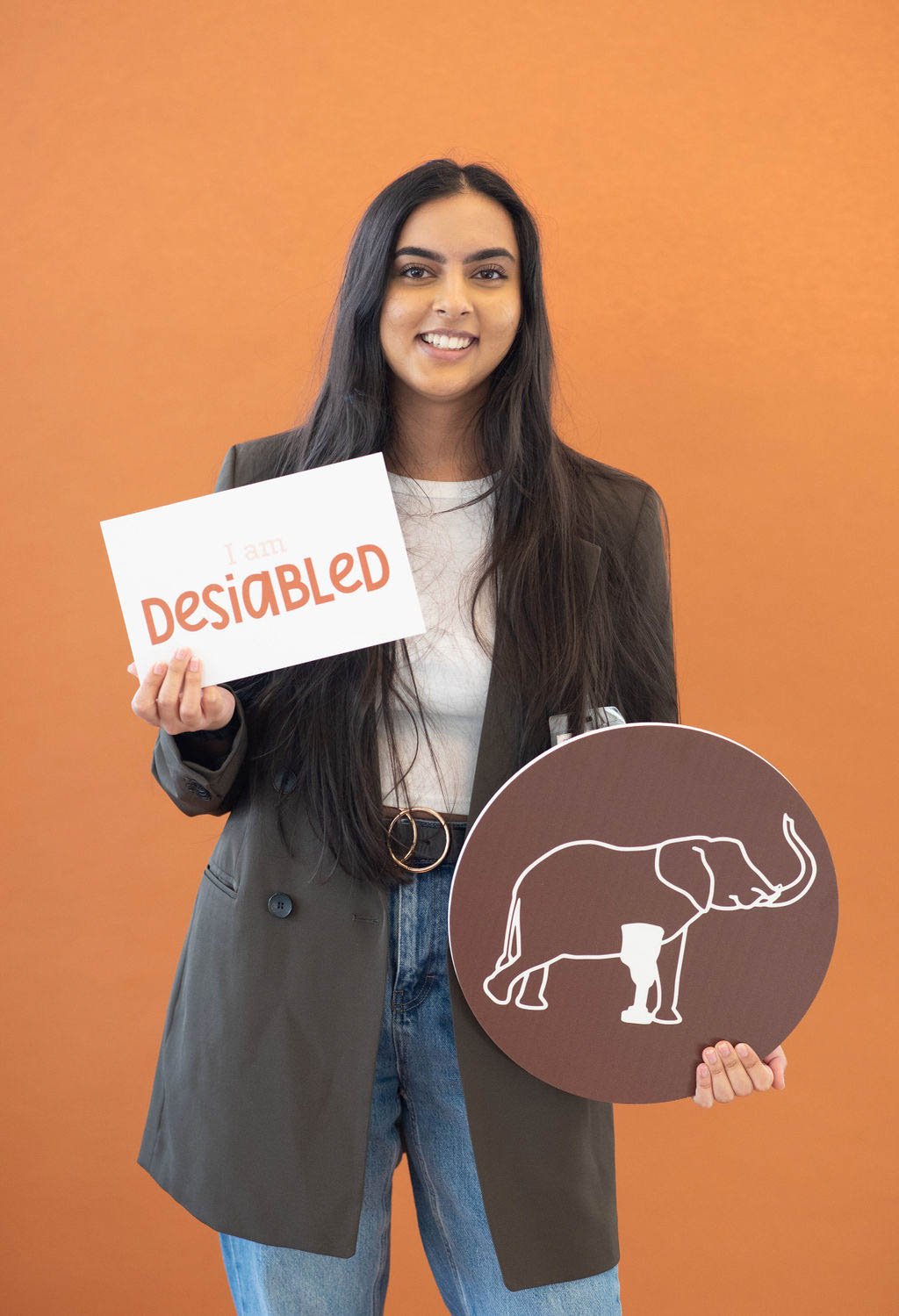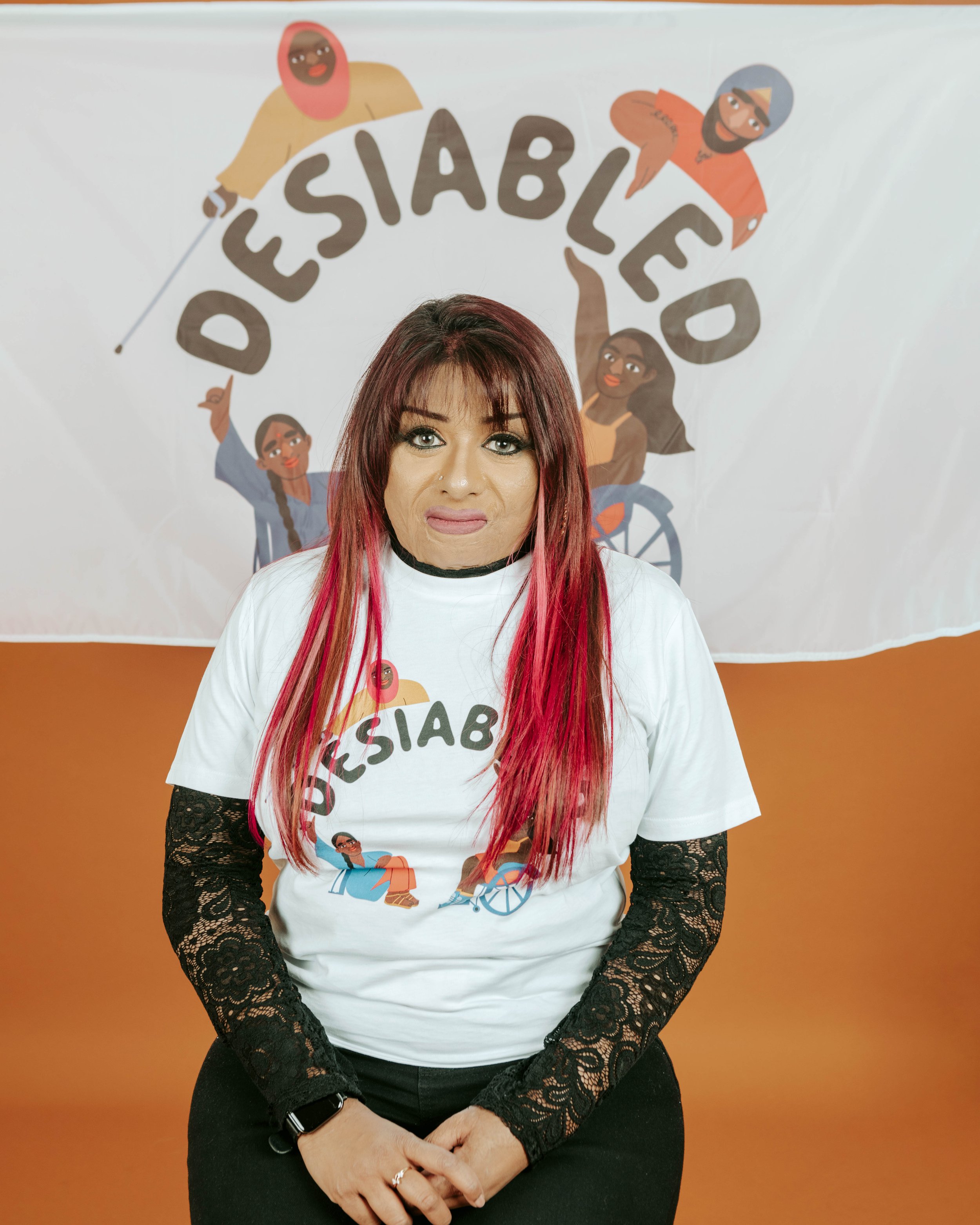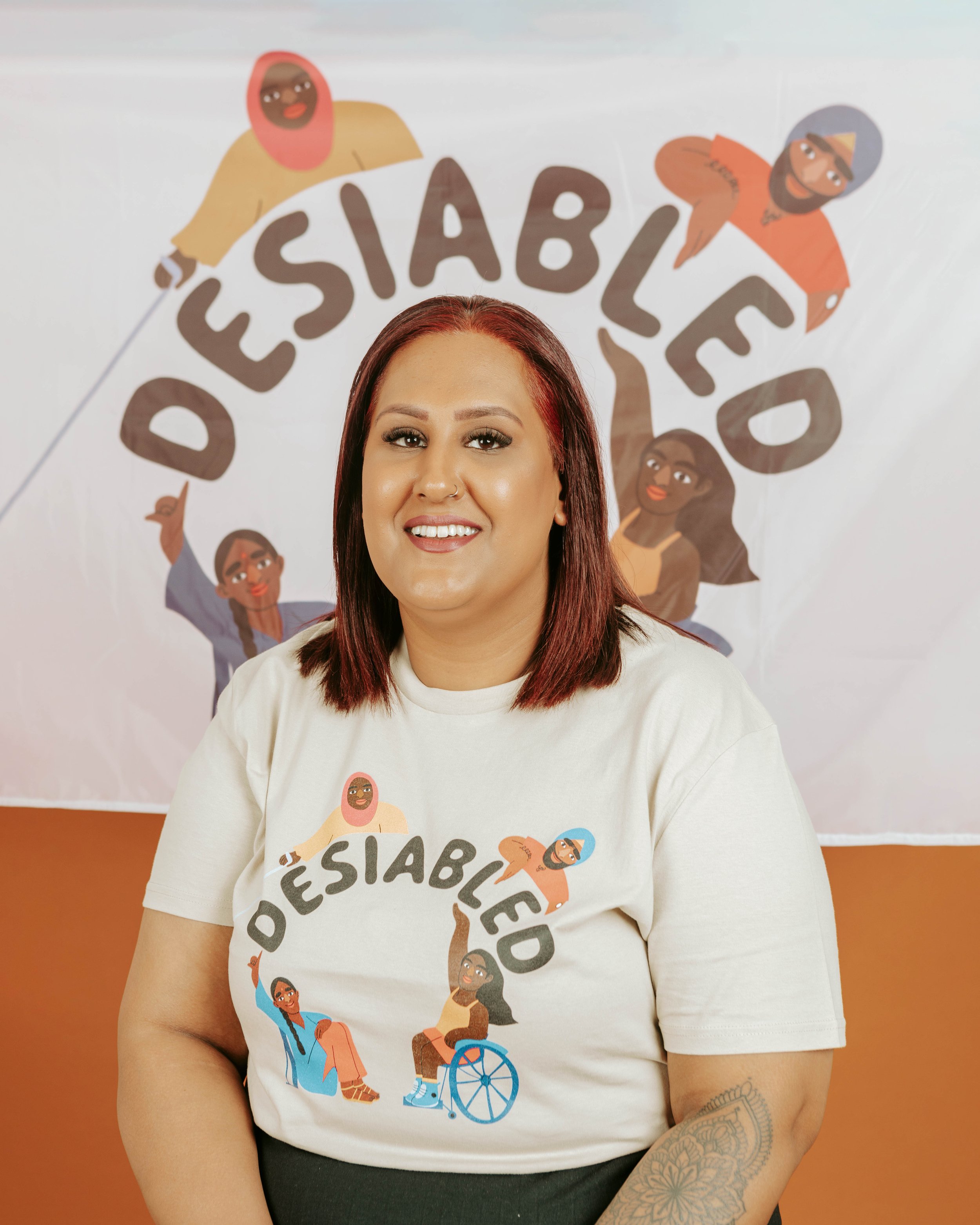Chronically Brown's team use their own lived experiences with disability to establish the projects and use campaigns to diversify the voices of disabled people.
When it comes to disability, research shows that the more educated you are about the condition you have, the better quality of life you may have, and support has a direct impact on wellbeing. However disability is still viewed in the South Asian community as a taboo subject and censors disabled South Asians from talking about their experiences.
Chronically Brown aims to mitigate this with a range of services such as campaigns, workshops, discussion groups and many online resources to help break the stigma and get people talking.
ABOUT THE FOUNDER
Sukhjeen Kaur is the Founder and CEO of Chronically Brown, a non-profit organisation working towards tackling the stigma of disability within the South Asian community. She started Chronically Brown as a result of her own experiences of people not understanding or accepting her disabilities.
What does being a FEMINIST mean to you?
It's about recognizing that feminism isn't just about gender equality, but also about fighting for justice and equality for ALL marginalized groups. In regards to disability in South Asian community this means understanding the cultural impact it can have on disability as well as things such as gender, caste, immigration status and so on.








